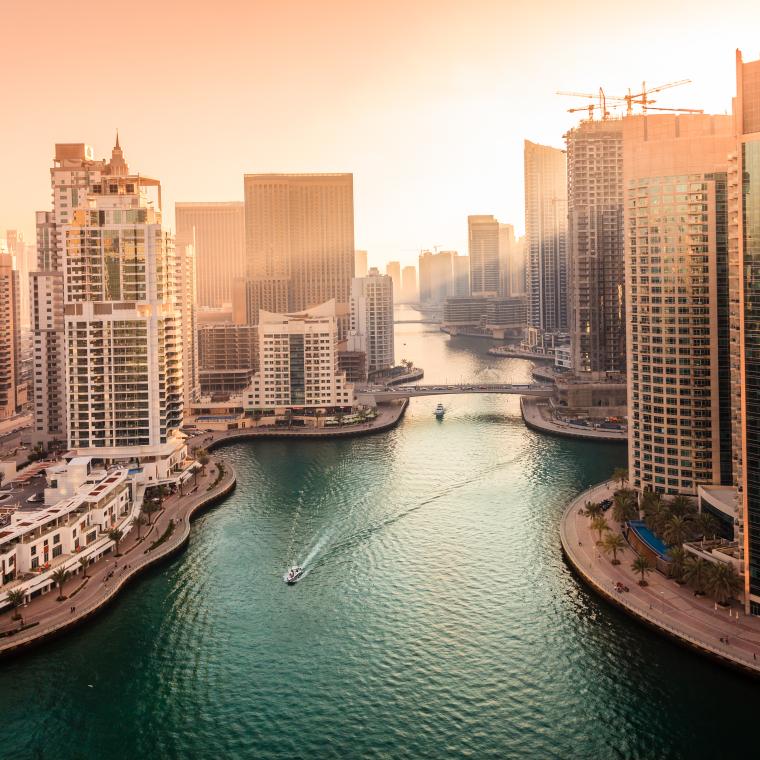
MEA Finance spoke to Leevyn Isabel, Business Development Director, Private Client from Ocorian's award winning team about the dynamic landscape of succession and estate planning in the Middle East.
- Find out about the four key challenges facing succession and estate planning practitioners in the region
- Discover the nine emerging trends in succession and estate planning in the Middle East
Can the region’s professional markets accommodate the needs of the c. 70% of the Middle East's wealthy families who require Sharia compliant estate planning?
There is no shortage of qualified Sharia-compliant estate planning professionals in the region. Sharia-compliant estate planning is not a new field and has always been in demand. The challenges are:
- Structuring local GCC assets: the inclusion and growing weightage of local assets, compared to non-GCC assets, in Sharia compliant estate plans.
- The novelty of domestic estate planning solutions e.g., common law private foundations, UAE federal trust regime, etc.
- The growing interaction and interplay of multiple (non GCC) jurisdictions, either through location of the family businesses and/or family members holding non-GCC nationalities / non-GCC tax residencies.
- The lack of harmonisation and standardisation of laws governing Sharia-compliant estate planning in the different GCC countries. This can make it difficult for wealthy families to develop comprehensive estate plans that cover all their assets in GCC.
What emerging trends in the region are currently shaping the future course of estate and succession planning?
- Domestic structuring: While international structuring has been an option for many years in offshore finance centres such as the Channel Islands, local structuring – such as the UAE Foundation – is relatively new. Clients often prefer to work with a locally based advisor and domestic structuring options are helpful in respect of the increasing costs and pressures of international tax compliance.
- Growing wealth in the GCC: The GCC is one of the wealthiest regions in the world. The region’s economies are booming and the cost of oil has seen record highs. The region's burgeoning affluence is driving up demand for estate planning services.
- Growing awareness of estate planning in the GCC: Families and high-net-worth individuals are now much more aware of the importance of asset protection and intergenerational planning.
The next generation is taking the lead in terms of financial planning, as they are aware that in case of dispute the family assets will be diluted by legal costs and distribution to multiple heirs. - Impact investing and ESG: Impact investing and ESG concerns, particularly for next-generation family members, are on the rise.
Ocorian’s research with professionals working for family offices in the Middle East, collectively responsible for more than $15 billion assets under management, showed that 93% of younger family members want to focus more on ESG while 87% want to focus on the long-term sustainability of the family office. That is also translating to increasing interest in investing in private markets and even digital assets. - The professionalisation of the family office: Family offices are becoming increasingly sophisticated, as they are increasingly demanding more sophisticated investment strategies and greater transparency. The move to increased professionalisation has gathered momentum due to growing complexity in managing assets from the growth of alternative asset classes such as private equity, venture capital, hedge funds and real assets as well as a rise in regulatory requirements as they look to global assets.
- Technology: Technology is playing an increasingly important role in estate planning in the GCC and beyond. For example, the DIFC wills’ execution and registration are done virtually, and the registration and operations of UAE foundations and family offices are all done virtually.
Family offices have also embraced advanced data analytics, artificial intelligence, and machine learning to enhance their investment decision-making processes. - Affordability: The relative low cost of establishment has led to the democratisation of the UAE foundation vehicle, enabling a broader segment of the population to structure and protect their assets. It now costs around USD 260 to register a will with the Abu Dhabi Judicial Department.
- Multiple estate planning structures: Many wealthy families in the GCC have assets in multiple countries. The usual practice was to have one holding structure, typically a foreign trust or foundation, allowing consolidation of assets. However, with the current state of uncertainty, there is an increased demand for multiple estate planning structures as a strategy to mitigate risk.
- The use of professional estate planning advisors: More and more families in the GCC region are seeking professional advice. Estate planning can be complex and there are a number of factors to consider. Estate planning advisors can help families develop estate plans that meet their specific needs and protect the interests of their loved ones.
These nine trends are all very exciting but they do also bring new challenges, such as making sure that investments are both achieving target returns as well as the desired ESG credentials.
Family offices and private clients across the region need support with navigating these new issues, whether it’s with foundation and trust services – to succession planning for family assets and businesses.
That is leading to a growing role for third-party providers currently and in the future to enable family offices and high net worth individuals to take full advantage of the opportunities in the Middle East and beyond.
Ocorian in the UAE
At Ocorian, we have both local expertise and global reach. With operations in both the DIFC and the Abu Dhabi Global Market, Ocorian has a dedicated and professional team in the GCC, working with local and expat families, offering a wide range of corporate and private client services.
These range from helping navigate the complexities of the UAE and choosing the right structure to meet specific needs to the ongoing administration of the chosen structure, including providing corporate secretarial services, fiduciary services, accounting, and other support services.
Our team will work with you to create a plan that solidifies your succession ambitions and ensures the right governance is in place for the smooth transfer of assets and leadership.
Combining local experience with professional expertise, we help untangle what is a complex regulatory environment so you can deliver on your goals.
From corporate to visa services, the establishment of special purpose vehicles (SPVs) and private client services, we provide a one-stop shop so you can take full advantage of the region’s opportunities.
We offer full establishment and administration services for the increasingly popular Abu Dhabi Global Market and DIFC foundation vehicles, tailoring them to clients’ specific needs and objectives.
This is part one of a version of an interview which first appeared in the Estate and Succession Planning section in the November 2023 issue of MEA Finance.
*Ocorian commissioned independent research company PureProfile to interview 30 family office investment managers working for family offices in the Middle East which use third-party private client services providers to support in the preservation and protection of their clients’ wealth. The investment managers interviewed are responsible for assets under management of $15.2 billion. The study took place during February and March 2023. Download the full report.


